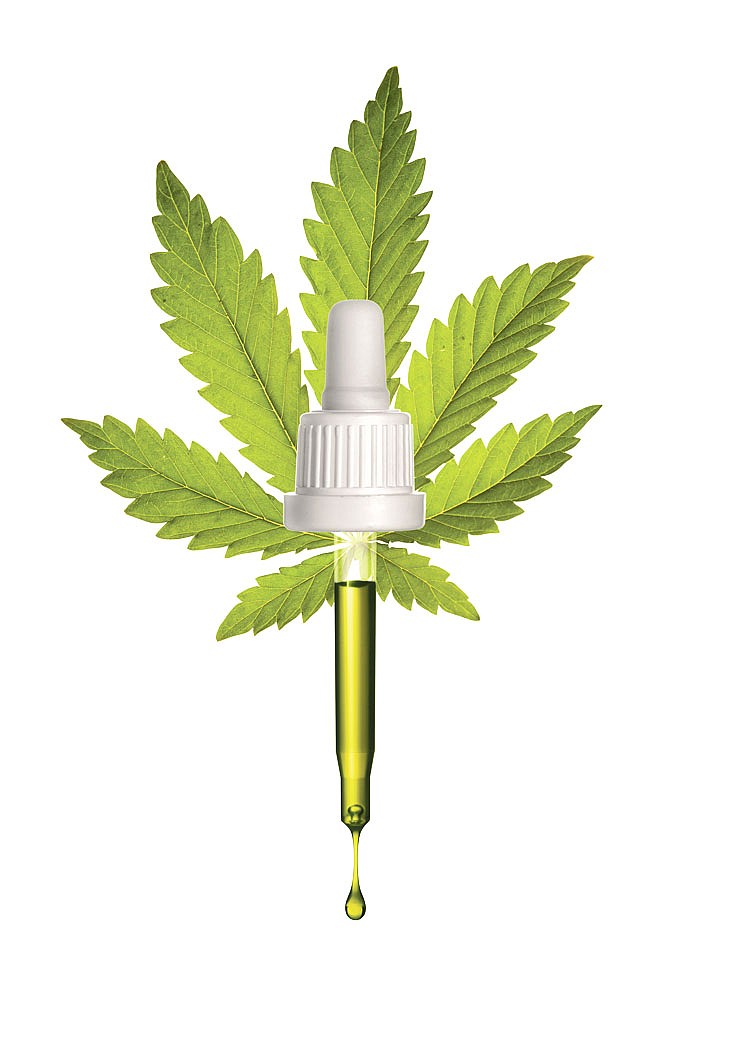The new rules regarding growing and processing hemp from the Tennessee Department of Agriculture announced in June are the latest reasons why the emerging industry is creating legal experts in the regulations governing hemp, both federally in and Tennessee.
"It feels like the rules and regulations are changing every day," says Ryan Saari, owner of Smokey Mountain CBD in McMinn County. Saari began growing hemp in 2017 and has five strains of hemp currently on an acre of land. "I have two lawyers I work with. Some of it is just normal business issues like trademarks or licenses, but the part that is dealing with state and federal regulations is growing fast."
That is exactly what Nashville lawyer Sam Blink told 40 people involved with growing, processing or distributing hemp-infused products during Hemp Week in Chattanooga in June. Blink is the managing member of a boutique law firm in Nashville focusing on environmental compliance and litigation as well as business structure and planning. An advocate for the cannabis industry, Blink began to focus on hemp "once people started walking through the door a few years ago."
"I am an advocate and its fits my business," says Blink, a 2007 graduate of Indiana University School of Law. "I know it is an emerging industry because I was in Michigan when cannabis went from illegal to medicinal to recreational. I tried to educate myself on Tennessee so I can become a resource to help growers all over the state."
Growing hemp became legal in Tennessee when the General Assembly removed hemp from the criminal code in 2014. Hemp is a term used to classify varieties cannabis that contain 0.3 percent or less of tetrahydrocannabinol, or THC - the main psychoactive compound in marijuana that gives the high sensation for users. The Federal Drug Administration has set broad standards for the hemp industry in the 2016 and 2018 farm bills but leaves it to states to write rules and administer the hemp industry.
Tennessee ranks fifth among the 24 states where hemp is grown with 3,338 licensed acres, according to Hemp Industry Daily, a trade publication. Kentucky is fourth with 6,700 licensed acres while Montana tops the list with an estimated 22,000 licensed acres. Nationally, the publication says that acres licensed to grow hemp jumped from about 25,000 in 2017 to 79,000 in 2018.
Blink told current and prospective hemp business owners to learn or surround themselves with the legalities of being involved in either growing, processing or transporting hemp.
* Business structure: "The same licensing requirements that apply to regular business apply to hemp businesses, but many of the people wanting to get into the hemp business have set up businesses before," says Blink. "The business structure is important, just like with any business, especially with when it comes to personal liability. No one is really sure what the enforcement is going to be like, yet, so it's important to protect yourself against personal liability."
* Licenses: Blink said the varied types of required licenses are important and new to many hemp business owners. The Tennessee Department of Agriculture requires a license to grow; a license to process and extract the CBD oil; a permit to transport hemp, both rooted and non-rooted, and a license from the feed, seed and fertilizer second of the TDA.
"There are reporting requirements with the license to grow that are due seven days before a harvest about where the hemp is going," says Blink. "The movement permit is something most new people in the industry don't understand. You have to get a permit every time you transport hemp and have your paperwork; doesn't matter if it's a small U-Haul trailer or 24-foot truck. If you get stopped by the police, the load is going to look just like marijuana."
* Changing regulations: Blink said most experienced hemp business owners and lawyers were still digesting the TDA rules issued June 3. He and Saari both said the TDA rules regarding the process for testing and determining TCH levels was going to raise issues.
"The testing requirements in the state rules are different than what they are in the federal farm bill, and that has everybody nervous," says Blink.
"The state requires a lab test on board before you cut crop down," says Saari. "The process the lab uses applies heat to the hemp, and that can result in a false positive for hemp above the 0.3 limit."
* Regulatory Enforcement: Blink believes the confusion and stereotypes about hemp vs. marijuana will lead to a higher-than-normal focus on enforcement of TCH levels. "When you get your license to grow, you give up any rights to refuse an inspection of the crop," says Blink. "An inspector can show up at any time and take a sample for testing. You then can't do anything with the crop until the text comes back."
Blink said the state can issues a "stop movement" order or a "destruction" order. Such an order comes with an appeal process before an administrative law judge is required before an owner can challenge the test in court.
"The rules are going to keep changing as the federal and state governments deal with the tremendous growth," says Blink.
Blink said the most significant change in the 2018 Farm Bill, which passed Congress in December 2018, is that it will allow hemp crops to be insured against the same types of disasters that impact other crops.
"It's going to take a year or so for the insurance to come along, but this is a huge development for hemp growers," says Blink. "Not all of these people can afford lawyers, but they can talk to people with experience. That is what they should do."

